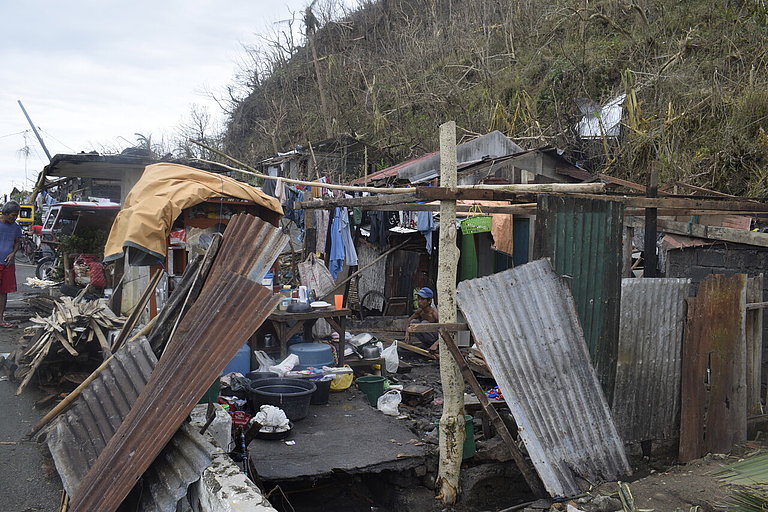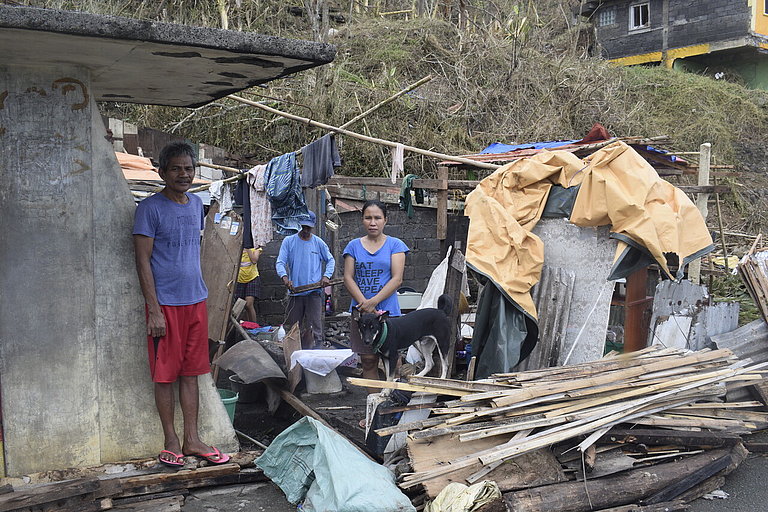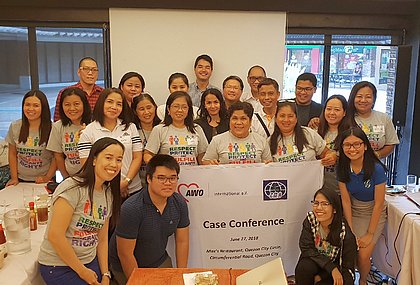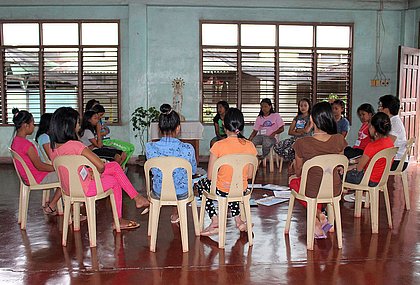The Philippines ist regularly affected by natural disasters such as cyclones (typhoons) and earthquakes. People are thus used to a lot in terms of extreme weather events. However, the frequency and severity of these events have increased significantly in recent years and are increasingly pushing the resilience of the population as well as the emergency response capacities of the government to their limits. The effects of climate change are increasignly putting the population at risk. That the two are directly related is well understood by the people of the Philippines, except that as poor fishermen and farmers who work hard for their daily livelihoods, there is not very much they can do about it. Moreover, a violent typhoon in the midst of the Corona pandemic easily becomes a double disaster.
Massive floods and landslides

Typhoon Rolly (international: Goni) and Typhoon Ulysses (international: Vamco) were the fifth and sixth heavy cyclones to hit the Bicol region on the eastern side of the northern island of Luzon in the 2020 typhoon season. Gale-force winds and the torrential rain that fell within a few hours brought so much water that there was massive flooding, landslides and severe damage to homes and infrastructure. It was already towards the end of the annual typhoon season, in November. People were just beginning to recover from the effects of what was classified as "Super Typhoon" Rolly when Ulysses hit, literally destroying what was left.
The storms hit the villages and communities in the midst of the Corona pandemic. Besides the destruction of their homes, the loss of their crops and fishing boats, many of them now have to fear contracting the virus in the shelters. Adhering to distance rules and hygiene measures is particularly difficult for people in this situation.
AWO International provides emergency aid
Together with our partner CONCERN, we are providing emergency aid for 6,000 of the most severely affected people in four municipalities in the province of Albay. CONCERN (Centre for Emergency Aid, Rehabilitation and Development) is a Philippine non-governmental organisation that has been active for years in humanitarian emergency aid, disaster preparedness and development projects. With its projects, the NGO works against poverty and social exclusion.
The target group of the joint emergency aid project are those most affected by the two typhoons, the poor farmers and fishermen, and especially women who have lost their sources of income due to the destruction. The project provides food, hygiene kits and tarpaulins to reduce the immediate vulnerability and risk of disease and to enable a normal life through the restoration of human dignity. Beneficiaries are identified using agreed selection criteria and in collaboration with local administrations. The affected people and their communities are involved in the process. They come together in committees that organise and accompany the selection of beneficiaries and the proper distribution. These committees are guided and supported accordingly. After the implementation of the immediate emergency relief, the community-based disaster preparedness committees emerge from them and receive further training.
The material assistance and empowerment provided through the committees will enable people to overcome the disaster and move on to reconstruction. Reducing the risk of infection with the Corona virus through direct education and the provision of information material and simple protective equipment is considered an important aspect.
Projectinfo
| Project | First aid after Taifun Goni in Malilipot, Albay |
|---|---|
| Place/Region | Malilipot, Albay Provinz, Region Bicol, Luzon, Philippinen |
| Partner | CONCERN |
| Target group | 6.000 people |
| Activities |
|
| Duration | 01.12.2020 - 30.04.2021 |
| Budget | 40.000 EUR |
| Sponsor | AWO International, Aktion Deutschland Hilft |


